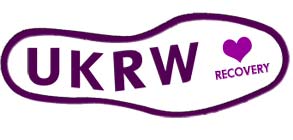Consultation 2010: Mental Health and Recovery
The following brief report incorporates the comments and feedback received from all who attended the Mental Health and Recovery Workshops at theUKRF Conference held on the 7-05-2010 at the Gujarat Centre in Preston.
The aim of the workshops was to have constructive dialogue on the following key themes:
What is good at the moment regarding Mental Health and Recovery?
How can we develop this?
What are the Gaps in service provision?
How can we develop this?
What are the Gaps in service provision?
After two very involved and thought provoking sessions the following key issues were identified.
What is good at the moment?
- Greater recognition of the complex issue of mental health and substance use
- More awareness of services
- Mental health and substance use being given greater priority within the treatment field
- The availability of alternative therapies and talking therapies as opposed to medicalising the problem
- Accepting that addiction is a mental health issue
- Improved communication between services
- More mental health practitioners working in substance use services
- Risks are being recognised more
- Care plans focusing upon greater consultation
- Improved aftercare treatment and support plans
- The use of different models to help people diagnosed with dual diagnosis
- People in services and in recovery being consulted more
- Less stigma
- The treatment field is experiencing a huge recovery focused transition which dovetails with substance use services’ shift in focus
This initial part of the session enabled the group to celebrate what is good. The group identified that this is often missing and that coming from a strength-based model is more productive and empowering.
How can we develop this?
- Services working together and learning from each others to develop meaning and purpose to support those in services and in recovery
- Increase the provision for support groups; self help groups, taster groups and outreach work
- Increased training opportunities
- Recovery communities featuring visible champions for dual diagnosis
- More campaigning to reduce stigma for dual diagnosis
- Greater service user consultation
- Wider availability of counselling in the community
- Increase the number of mental health practitioners in drugs teams
- Reduce number of commissioners and divert money into frontline services
- More help to enable people into work out of benefits trap, which could reduce stigma
- Develop the marketing and communication of help that is on offer
- Develop more recovery networks incorporating peer mentoring services and volunteering roles
- Developing voluntary organisation further as they can do so much with so little, especially when service user led
Posing this question led to constructive and focused dialogue, and the findings represent a wide range of diverse opinions from service users, ex service users and professionals working in the field of both substance use and/or mental health. All agreed that it was important not to undermine the positives that had been identified and it was felt that, to strengthen future developments, service users needed to be at the heart of future consultation and decision making processes.
What are the gaps?
- Not enough service users informing policy and service development
- Lack of knowledge and understanding from psychologists and psychiatrists regarding the effects of substance use.What happened to social psychiatry?
- Lack of training in the substance use field amongst workers leading to difficulties around diagnosis of mental health conditions
- Greater application of effective communication amongst professionals
- Offenders in prison being undiagnosed and their needs not being met
- Lack of outreach in certain areas, post code lottery
- Need increased access to psychological services rather than focusing upon drugs and crime
It is easy when considering gaps in provision to fall back into a negative and reactive stance towards inequalities and inconsistency within the field of substance use and mental health. However workshop participants focused upon considering questions from a strength based model, agreeing that to get greater cohesion within services, service users’ voices need to be heard and not be seen as a tokenistic gesture if we want to achieve modern services.
Keith Robertson (Lancashire)
Martine Bell (Lancashire)
Martine Bell (Lancashire)

No comments:
Post a Comment